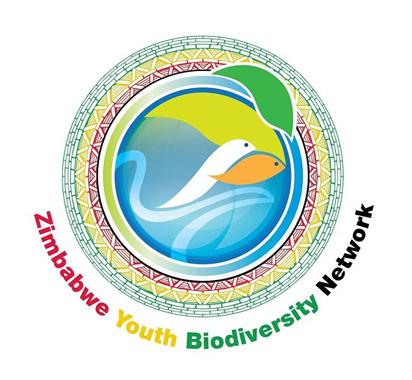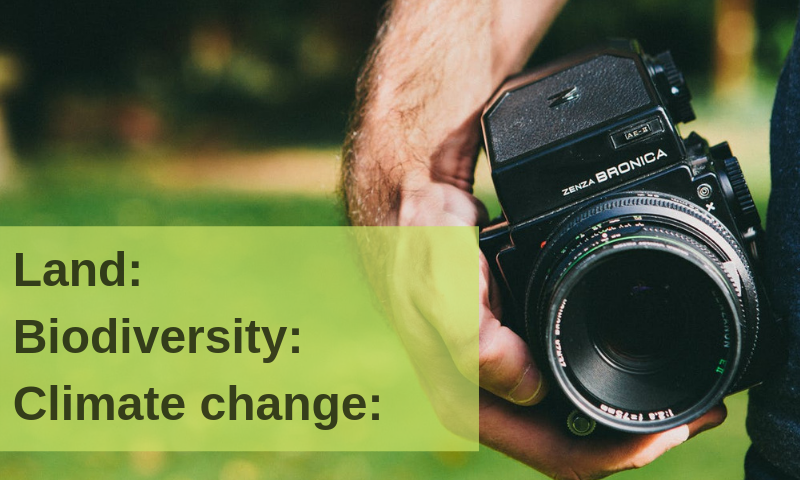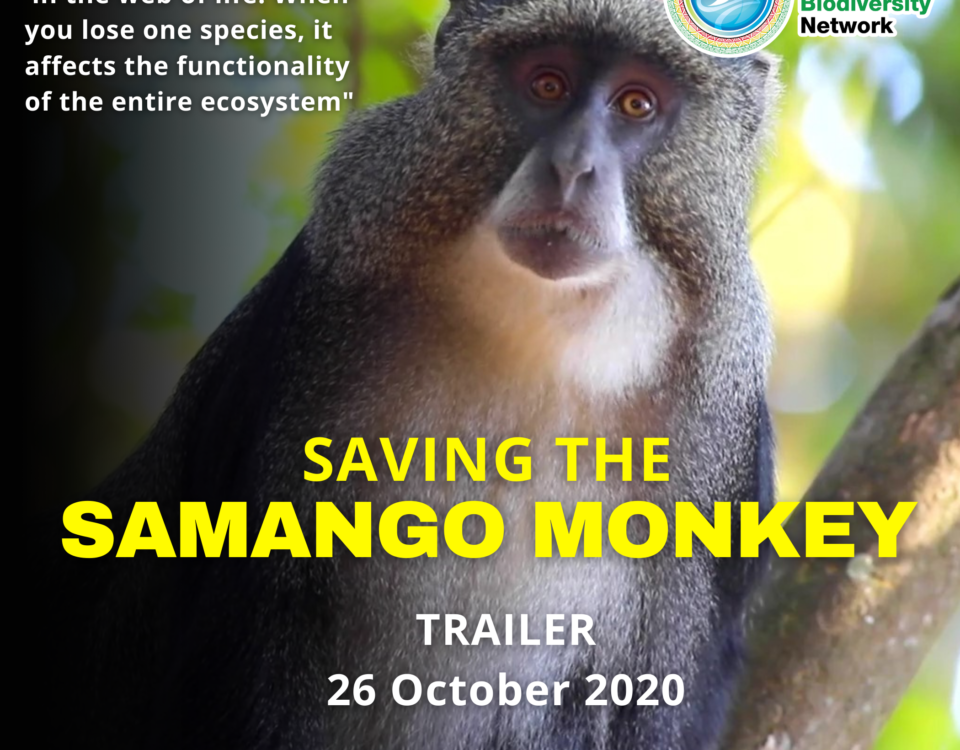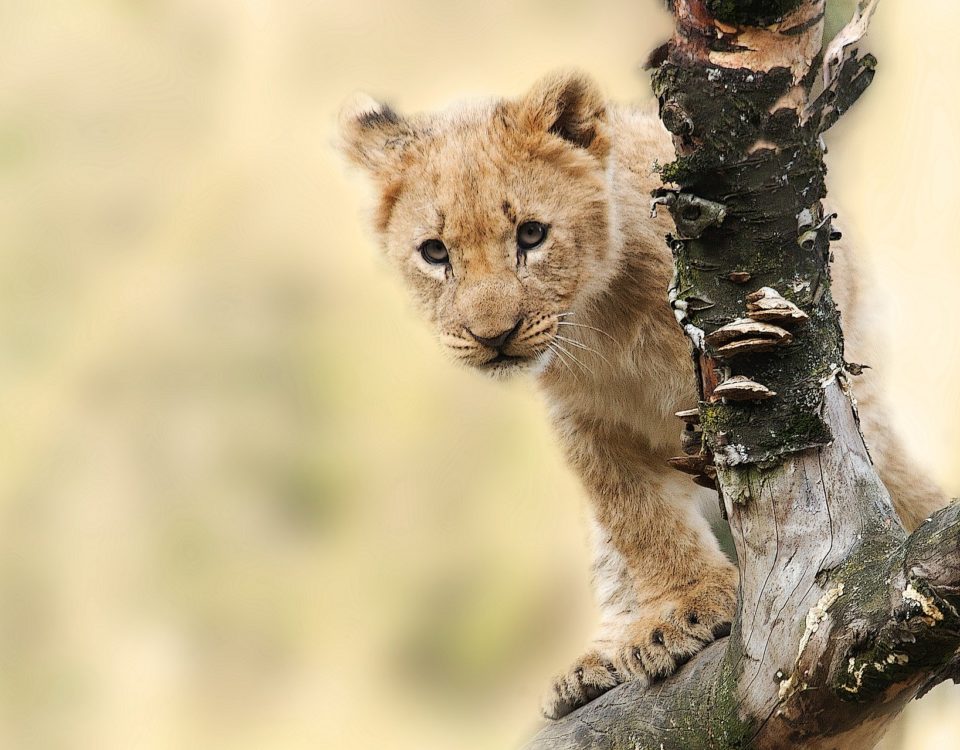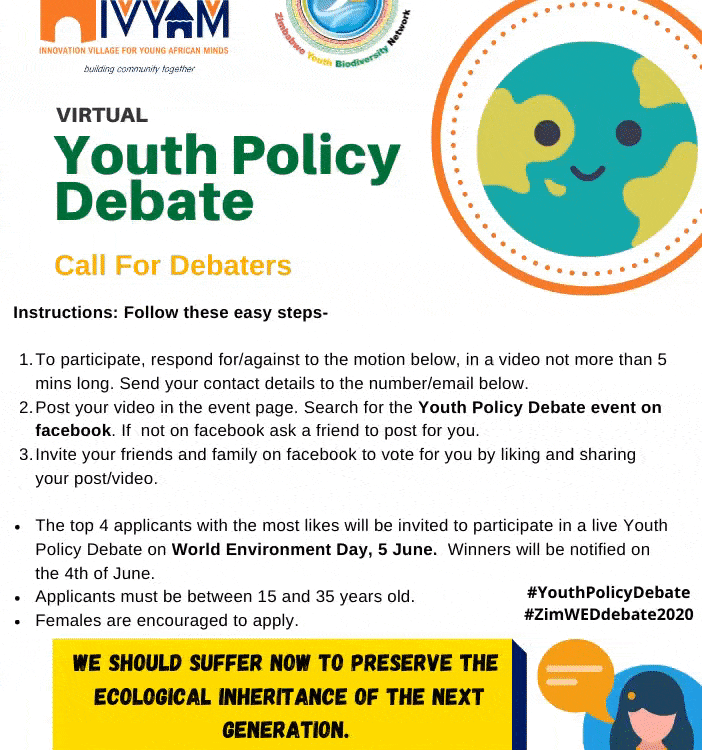2019 Global Youth Video Competition Now Open for Applications

International Biodiversity Day, May 22 2019
May 20, 2019
Speaking of the Future: A Youth Dialogue on Wildlife Conservation
June 21, 2019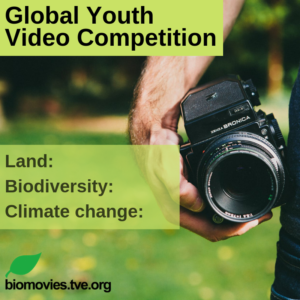 Young people from around the world are encouraged to submit videos for the 2019 Global Youth Video Competition showcasing positive solutions on three themes: Nature-based Solutions for Food and Human Health; Cities and Local Action to Combat Climate Change; and Nature-Based Solutions to balance the use of land for people and ecosystems.
Young people from around the world are encouraged to submit videos for the 2019 Global Youth Video Competition showcasing positive solutions on three themes: Nature-based Solutions for Food and Human Health; Cities and Local Action to Combat Climate Change; and Nature-Based Solutions to balance the use of land for people and ecosystems.
This year, the fifth edition of the video competition aims to mobilize global youth around the Climate Action Summit organized in September by the United Nations Secretary-General António Guterres. The competition is led by the secretariats of the three Rio Conventions: the United Nations Framework Convention on Climate Change (UNFCCC), the Convention on Biological Diversity (CBD) and the United
Nations Convention to Combat Desertification (UNCCD), in partnership with the GEF Small Grants
Programme (SGP), implemented by the United Nations Development Programme and Television for the
Environment (tve).
One winner will be selected per category. The three winners will attend the UN Climate Change
Conference (COP25) in Santiago, Chile, in December 2019. The winning videos will be screened in front
of a global audience at the conference. In addition, the videographers will have the opportunity to work
with UN Climate Change’s communications team, covering highlights of the conference.
“Youth are powerful agents of change,” said UN Climate Change (UNFCCC) Executive Secretary Patricia
Espinosa. “I am looking forward to see their energy and creativity reflected in all three themes of the
competition this year which we have developed in close partnership with the Convention to Combat
Desertification and the Convention on Biological Diversity. I’m also looking forward to see the voice of
youth reflected at the September Climate Action Summit and the December Climate Change Conference
in Chile in many creative and impactful ways.”
CBD Executive Secretary Cristiana Paşca Palmer said: “Young people have the capacity to influence adults and convince them to act now, and before it is too late. They have the drive and motivation to help find solutions to environmental challenges and transform damaging habits into beneficial actions for life on earth. The CBD has always encouraged youth to take action and bring innovative and creative solutions or biodiversity. I look forward to working with our sister Conventions in disseminating the youth’s messages about the three themes of the competition to actors at all levels.”
“More and more young people are voicing concern about environmental degradation. Their proposals
for solving seemingly intractable environmental issues are often beyond our imagination. With this video competition, we will see the world through their eyes, and get inspiration to protect and restore valuable land and ecosystems to sustain us all today while securing their future,” said Ibrahim Thiaw, Executive Secretary of the UN Convention to Combat Desertification.
Entrants must be between 18 and 30 years of age and should submit a maximum 3-minute video by 28 July 2019 on one of the themes outlined above dealing with nature-based solutions and local climate action.
Videos for the category Nature-based Solutions for Food and Human Health could present initiatives
aimed at producing foods that preserve land, safeguard water resources and promote biodiversity;
promote sustainable production and consumption of healthy and varied foods rich in vitamins and
minerals; and support or promote traditional food cultures and knowledge. Examples could include the
production of environmentally friendly, locally varied fruits and vegetables, promoting local food
economies or procurement policies that support sustainable food systems, sustainable fishing practices,
innovative ways to reduce food waste or incentivize composting food scraps, reducing the use of
pesticides and fertilizers, or campaigning to foster behavioral changes related to sustainable production
and consumption, such as avoiding single-use plastics and consuming seasonal foods.
In the category Nature-Based Solutions to balance the use of land for people and ecosystems,
submissions can include videos on the restoration of landscapes, natural habitats, and other ecosystems,
including forests, in addition to themes relating to emissions reductions from sustainable consumption,
support for indigenous peoples and local communities to protect their communal lands, the use of
sustainable land management techniques, both traditional and innovative, and supporting sustainable
food production systems to improve the land and its biodiversity. A selection of the videos will be shown
at the 14th session of the Conference of the Parties to the UNCCD to be held from 2 to 13 September in
New Delhi, India.
For the Cities and Local Action to combat Climate Change category, videos can feature initiatives that
campaign to produce behavioral changes, that develop more sustainable commuting, that produce
merchandise and food locally, that provide services to people affected by climate change, that reduce
energy use in buildings, that reclaim green spaces, that create wealth from waste, or implement shared
economy principles.
Judging panels composed of representatives of the three secretariats will pre-select a short list of videos
in each category based on the criteria of content, innovation, originality, impact, and technical expertise.
Pre-selected videos will then be posted online to be voted on by the public.
The 2019 edition of the Global Youth Video Competition is organized with the support from BNP Paribas
Foundation. The competition will be implemented through the tve platform.
Apply Here http://biomovies.tve.org/competitions/global-youth-video-competition-2019/
Convention on Biological Diversity (CBD)
Opened for signature at the Earth Summit in Rio de Janeiro in 1992, and entering into force in December 1993, the Convention on Biological Diversity is an international treaty for the conservation of
biodiversity, the sustainable use of the components of biodiversity and the equitable sharing of the
benefits derived from the use of genetic resources. With 196 Parties, the Convention has near universal
participation among countries. The Convention seeks to address all threats to biodiversity and
ecosystem services, including threats from climate change, through scientific assessments, the
development of tools, incentives and processes, the transfer of technologies and good practices and the
full and active involvement of relevant stakeholders including indigenous and local communities, youth,
NGOs, women and the business community. The Cartagena Protocol on Biosafety and the Nagoya
Protocol on Access and Benefit Sharing are supplementary agreements to the Convention. The Cartagena Protocol, which entered into force on 11 September 2003, seeks to protect biological diversity from the potential risks posed by living modified organisms resulting from modern biotechnology. To date, 171 Parties have ratified the Cartagena Protocol. The Nagoya Protocol aims at sharing the benefits arising from the utilization of genetic resources in a fair and equitable way, including by appropriate access to genetic resources and by appropriate transfer of relevant technologies. It entered into force on 12 October 2014 and to date has been ratified by 117 Parties.
For more information visit: www.cbd.int. For media inquiries, please contact Margaret Egbula at +1 514
561 6350 or margaret.egbula@cbd.int or Johan Hedlund on +1 514 287 6670 or at
johan.hedlund@cbd.int.
